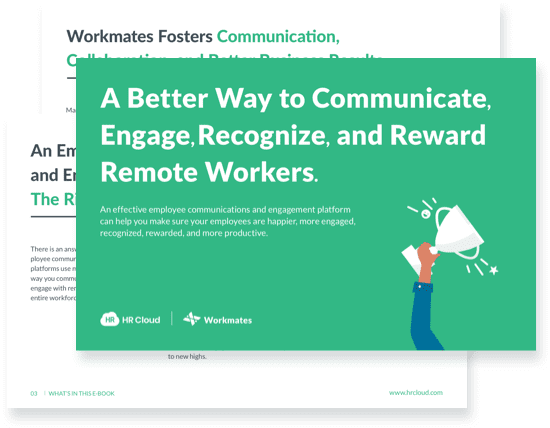Essential Tips to Help You Navigate the New World of Remote Working

In a survey by the company Buffer, “While fully remote companies (like Buffer) are the reality for 31% of respondents, an even greater 40% work on teams where part of the team is full-time remote, and the other part of the team works out of the same office. This leaves companies with the challenge of supporting both office and remote workers — employees who often have very different needs.”
This may be the first time you’ve worked remotely. You may be working individually or within a team. Or you could be a supervisor managing a remote team. These are some essential tips for everyone, to help you navigate the new world of remote working.
Establish A Dedicated Workspace
According to Buffer again, in their recent survey, “84% of respondents told us that, most of the time, they’re working from home. A much smaller percentage of remote workers primarily work from coworking spaces (8%), coffee shops (4%), libraries (0.5%) and other places (3%) including five RV campers, hotels, offices, and a grandma’s basement.”
Some adjustments are needed if you are planning on literally working from home, too. The first thing you need to create is a designated workspace. Ideally you want to set up your workspace in a separate room, such as a study, spare room or dining room. Or, set up a designated desk or work area somewhere quiet, well-lit and away from distractions. Home office décor also plays a major role!
You also need to ensure that you have a set-up which allows you to work effectively. For example, make sure that you have a comfortable chair to sit at. As well, check that you have all your work-related documents well organized and easily to hand to facilitate your working day. You may also want to consider investing in a wireless mouse and keyboard, particularly if working at a laptop all day.
Be Technologically Ready
It’s likely that you’ll also need to download some communication or video conferencing apps to work with your team remotely. There are many companies and services now available, many free of charge. Make sure that you are using the same software as your colleagues. This should facilitate sharing documents and co-working on projects and documents. Workmates by HR Cloud provides a centralized communication tool for your team to use remotely. This means everyone can access shared documents and continue collaborating easily.
“You need to ensure that you have adequate security,” says Kelly Lott, an HR at SimpleGrad and Revieweal. “Make sure your anti-virus is up-to-date, as well as your software and operating system. Ensure files and data are encrypted. Also make sure that you disable automatic login and enable automatic locking. This is particularly important if you’re sharing your workspace with the rest of your family.”
Set Achievable Goals
Being organized and staying focused is the key to productivity. Where possible, try to mimic the same working hours that you had when you were working physically at the office. Make sure that you share your schedule with your colleagues. This is so that they are aware of when you are working/online. Therefore, they will factor that in when arranging calls or organizing collaborations.
Plan and prepare the night before so that you are ready to start working the next day. Set yourself small, achievable daily tasks. You will be able to stay on top of your workload and remain focused and engaged this way. Share progress updates with your manager/supervisor so they can keep track of projects. It will also motivate you and give you a goal to work towards.
Stay Connected
It’s important to stay connected with your colleagues. If you usually have weekly meetings, ensure that you continue with these remotely. You may even find that daily check-ins are helpful. They can allow your team as a whole to get updated and work towards a shared goal.
Chief Executive Officer of Medlinks Cost Containment, Inc. and Medlinks Staffing, LLC.
“Our staff has praised the increased communications level Workmates delivers. We use it to communicate important project matters and give staff specific ‘kudos’ or even recognize their birthdays. More importantly, we use Workmates to clarify important project details that needed rapid dissemination among the entire team.”
“It's also important to ensure that you schedule some time for social interaction with your co-workers. It may be as simple as setting aside 10 minutes for employees to quickly catch up with each other. It will help to boost morale. It will also help everyone to feel involved and part of the team,” says Martin Cook, a writer at Australianreviewer and Best Writing Services.
Video conferencing is an important tool to make use of. It can ease collaboration. But crucially, it will also enable you to communicate non-verbal cues that you may miss via text or email. However, it is also important to offer and use different technologies for specific situations. For example, instant messaging or texts may be more appropriate for urgent situations. Whereas, email may be more suitable for daily progress updates. Make sure everyone on your team is aware of the expectations regarding communication.
Switch Off
This being said, it’s important to relax, too: “Most remote workers have unlimited vacation, yet take 2-3 weeks of vacation per year.
While only 7% of remote workers selected taking vacation time as being a struggle for them, this has been an important discussion point for remote workers. Notably, because the flexibility that remote work offers occasionally means that remote workers can work while traveling and don’t necessarily need to take vacation time to travel.
Vacation practices vastly vary by organization, by country, and by culture. Looking at how much vacation time remote workers are offered by their company each year, the most popular response to this question revealed that 32% of remote workers actually get unlimited vacation.” says Buffer.
And it’s important for remote workers to take vacations, considering how difficult it is for them to wind down when their work is over.
According to a Remote.co survey of 200 full-time remote workers, “unplugging after work hours (40 percent) is the biggest challenge remote workers face in their working lives. The survey, conducted in September and October of this year, claims that other challenges for people who work away from their firm’s main office for a significant proportion of their time include dealing with non-work distractions (32 percent), developing strong relationships with co-workers (25 percent), loneliness (23 percent), troubleshooting technology problems (21 percent), and working across different time zones (19 percent).”
So, after work, go to a different non-work related area of your home to relax. Put on more comfortable clothes. And go watch some TV, or go out for a long relaxing walk. Inform your colleagues that you will not respond to any texts or emails after work hours. But mainly, do what works for you.
Ensuring that you have a dedicated workspace, scheduled working hours and have organized your days will allow you to remain productive. Regular communication with co-workers will enable you to stay informed and minimize stress. Above all, by following these steps you’ll be able to ensure that you maintain a positive work-life balance.

To learn even more about managing remote teams and keeping employees working at home highly engaged, download our ebook now.
Download nowAbout Author
Beatrix Potter is an experienced HR leader at State Of Writing and OXEssays writing services. She has managed remote teams for several years and has experience working from home herself. Beatrix writes about remote work, including offering advice on how to improve productivity, using technology and boosting morale when working from home. She is also an online editor at Assignment Help Australia website.

Keep Reading
Balancing Technology and the Human Touch in Employee Engagement
Companies are taking employee engagement very seriously because it is one of the ways of
Building Strong Teams: The Power of Team Bonding Exercises
Never overestimate the power of collaboration as a core element of effective team

